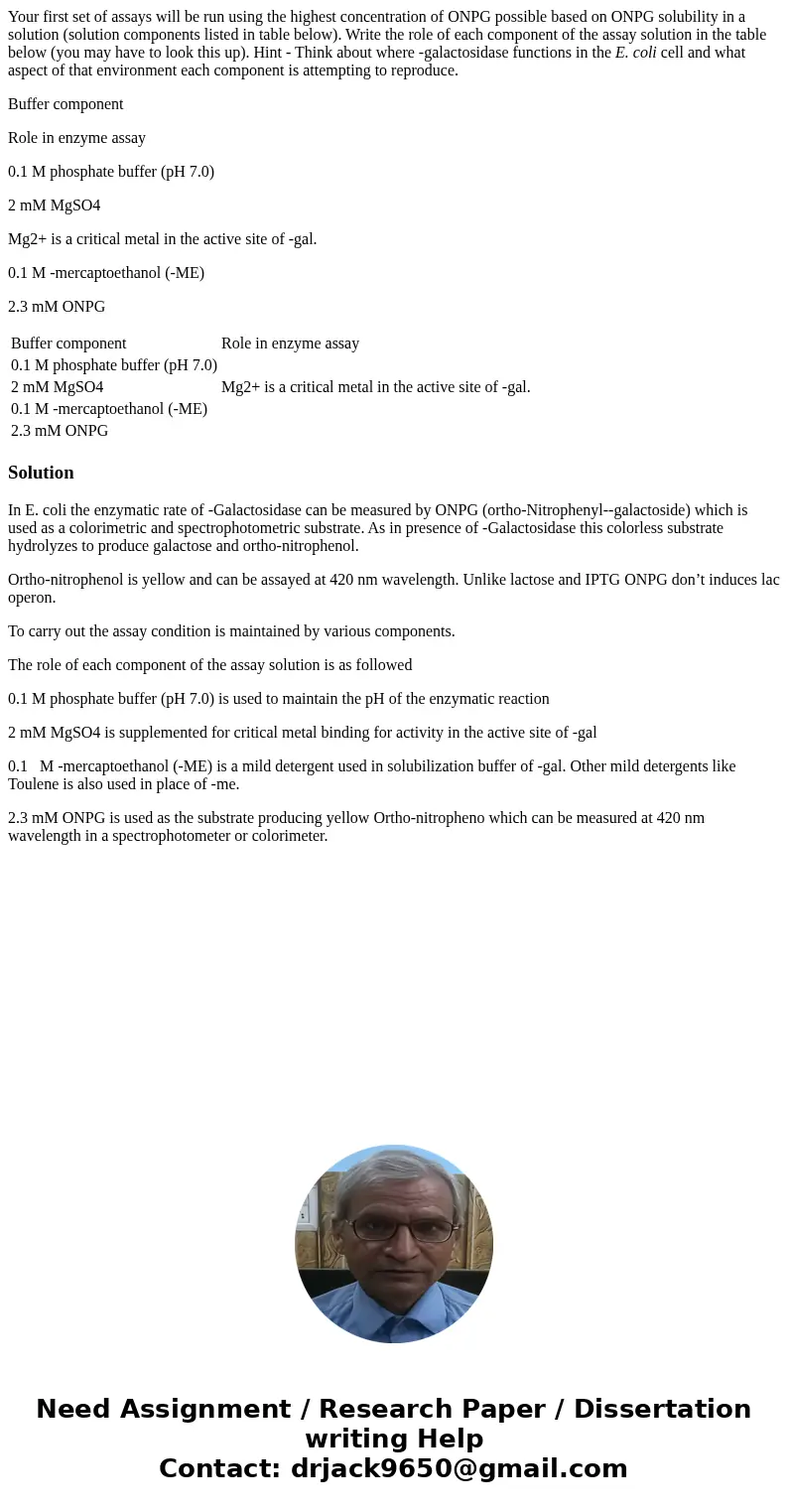Your first set of assays will be run using the highest conce
Your first set of assays will be run using the highest concentration of ONPG possible based on ONPG solubility in a solution (solution components listed in table below). Write the role of each component of the assay solution in the table below (you may have to look this up). Hint - Think about where -galactosidase functions in the E. coli cell and what aspect of that environment each component is attempting to reproduce.
Buffer component
Role in enzyme assay
0.1 M phosphate buffer (pH 7.0)
2 mM MgSO4
Mg2+ is a critical metal in the active site of -gal.
0.1 M -mercaptoethanol (-ME)
2.3 mM ONPG
| Buffer component | Role in enzyme assay |
| 0.1 M phosphate buffer (pH 7.0) | |
| 2 mM MgSO4 | Mg2+ is a critical metal in the active site of -gal. |
| 0.1 M -mercaptoethanol (-ME) | |
| 2.3 mM ONPG |
Solution
In E. coli the enzymatic rate of -Galactosidase can be measured by ONPG (ortho-Nitrophenyl--galactoside) which is used as a colorimetric and spectrophotometric substrate. As in presence of -Galactosidase this colorless substrate hydrolyzes to produce galactose and ortho-nitrophenol.
Ortho-nitrophenol is yellow and can be assayed at 420 nm wavelength. Unlike lactose and IPTG ONPG don’t induces lac operon.
To carry out the assay condition is maintained by various components.
The role of each component of the assay solution is as followed
0.1 M phosphate buffer (pH 7.0) is used to maintain the pH of the enzymatic reaction
2 mM MgSO4 is supplemented for critical metal binding for activity in the active site of -gal
0.1 M -mercaptoethanol (-ME) is a mild detergent used in solubilization buffer of -gal. Other mild detergents like Toulene is also used in place of -me.
2.3 mM ONPG is used as the substrate producing yellow Ortho-nitropheno which can be measured at 420 nm wavelength in a spectrophotometer or colorimeter.

 Homework Sourse
Homework Sourse